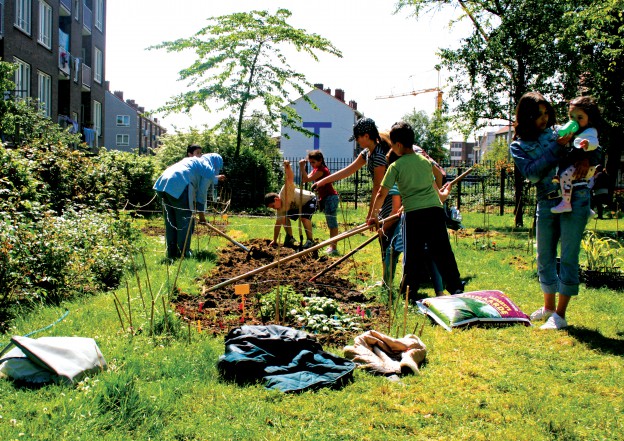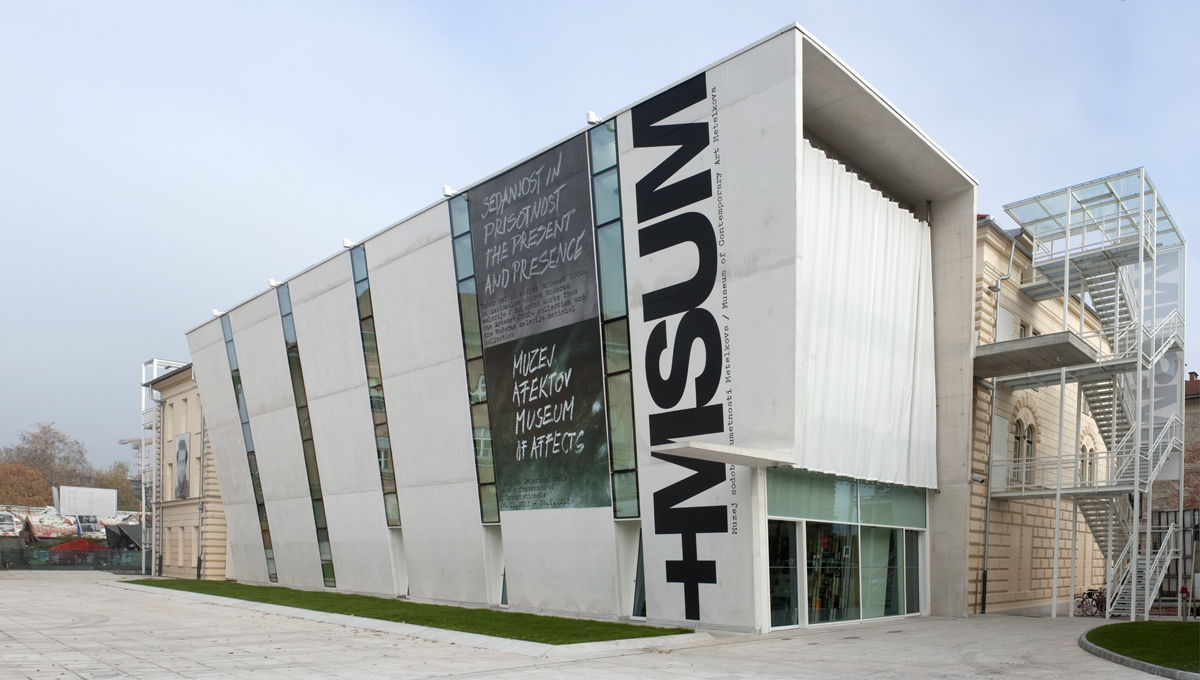Hope after Modernity: The Story of the Residents of Amsterdam’s New West is based on Marjetica Potrč’s research and on-site project The Cook, the Farmer, His Wife and Their Neighbour in Amsterdam in 2009.
The on-site project The Cook, the Farmer, His Wife and Their Neighbour is a community garden and community kitchen in the Nieuw West district of Amsterdam. A previously unused site at Lodewijk van Deysselstraat 61 becomes a community kitchen. The vegetable garden is located behind the kitchen in what was once a fenced-off yard, what the Dutch call a kijkgroen (look-only garden). The garden and the kitchen help to create bonds between the neighborhood residents and serve as a catalyst for transforming not only the public space but the community itself. The project is an example of redirective practice, in which people from various disciplines and backgrounds work together to find new ways to build a shared community. Amsterdam’s Nieuw West district was originally designed in the 1930s as a Dutch garden city. Today, however, it faces the problems of widespread unemployment and the integration of new arrivals. At the same time, this is one of the largest residential redevelopment areas in the European Union. The Cook, the Farmer, His Wife and Their Neighbour is a case study for redesigning the modernist neighborhood from below and redefining rural and urban coexistence.
Marjetica Potrč is an artist and architect based in Ljubljana and Berlin. Her work has been featured in exhibitions throughout Europe and the Americas, including the São Paulo Biennial in Brazil (1996 and 2006) and the Venice Biennial (1993, 2003, and 2009). Her on-site projects, which are based on participatory design, include Dry Toilet (Caracas, 2003), The Cook, the Farmer, His Wife and Their Neighbour (Stedelijk Goes West, Amsterdam, 2009), Between the Waters: The Emscher Community Garden (Emscher Kunst, Essen, 2010 and 2013) and Théâtre Evolutif (Evento 2011, Bordeaux, 2011). She has received numerous grants and awards, including the Hugo Boss Prize (2000) and the Vera List Center for Arts and Politics Fellowship at The New School in New York (2007). Since 2011, she has been a professor at University of Fine Arts/HFBK in Hamburg.



